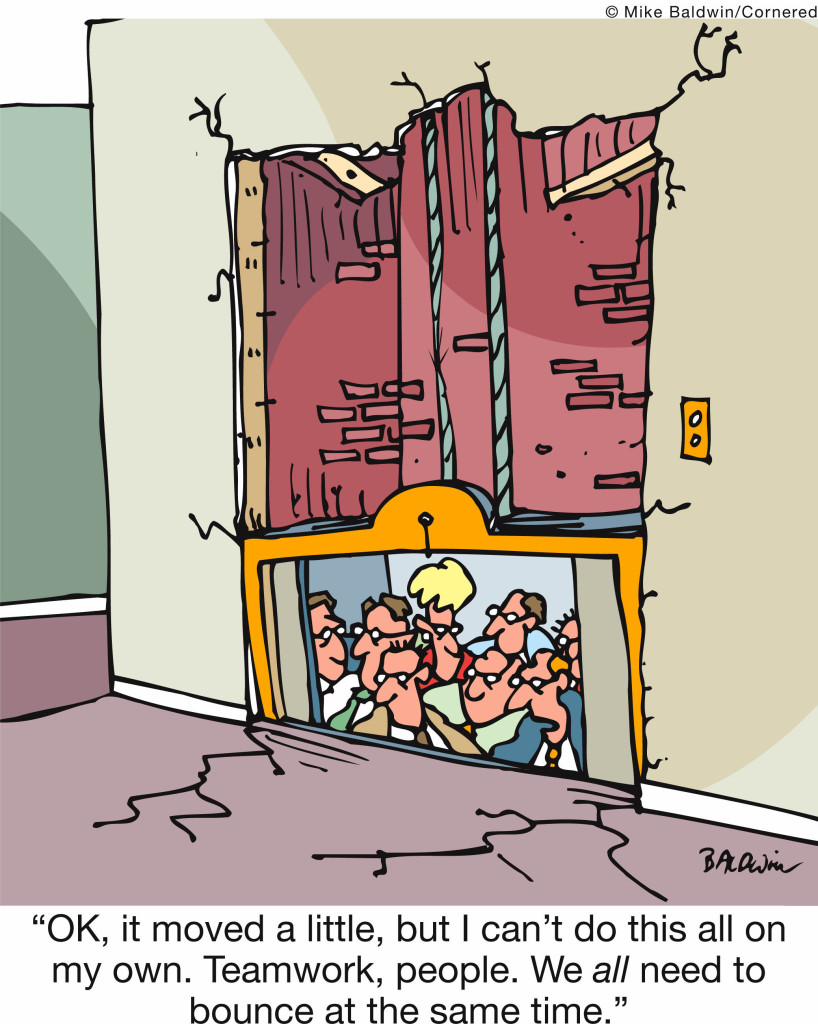 Not finance. Not strategy. Not technology. It is teamwork that remains the ultimate competitive advantage, both because it is so powerful and so rare. If you could get all the people in an organization rowing in the same direction, you could dominate any industry, in any market, against any competition, at any time. Lencioni
Not finance. Not strategy. Not technology. It is teamwork that remains the ultimate competitive advantage, both because it is so powerful and so rare. If you could get all the people in an organization rowing in the same direction, you could dominate any industry, in any market, against any competition, at any time. Lencioni
Carol Dweck, author of Mindset: The New Psychology of Success, often asks her students: “Try to picture Thomas Edison as vividly as you can. Think about where he is and what he’s doing. Is he alone?”
Most students picture Edison as an eccentric scientist tinkering around his laboratory all by himself. Interestingly, Dweck writes, “Edison was not a loner. For the invention of the light bulb, he had thirty assistants, including well-trained scientists, often working around the clock in a corporate-funded state-of-the-art laboratory.”
Most significant achievements are accomplished through teams of people. Someone is leading the team, but it is the collective effort that achieves.
A leader’s main job is to assemble, develop, and empower a great team that focuses on a worthy vision. Peter Drucker suggests that good leaders always use plural pronouns when discussing how work will be done: “The leaders who work most effectively, it seems to me, never say ‘I.’ And that’s not because they have trained themselves not to say ‘I.’ They don’t think ‘I.’ They think ‘we’; they think ‘team.’ They understand their job is to make the team function.”
The effective leader knows that:
- The old “command-and-control” leadership style has been replaced by one that relies on teamwork and consensus building.
- “All of us are smarter than one of us” so collaborative decision making is best.
- Today’s knowledge workers want to be engaged in meaningful work and respected for their contributions so they are given autonomy and support.
- Our world is so complex, no one person has enough knowledge or experience to function well, alone.
- Customers often have more insight into a company’s products and services than its employees do and are usually eager to share their thoughts. Collaborate with those outside your organization.
- Diversity enhances the benefits of collaboration. When compiling your team, pursue diversity in age, giftedness, personality, gender, ethnicity and background. Allow the diversity to express itself. Gary Heil says, “Recruiting a diverse workforce and then encouraging employees to act as a homogeneous group, where the tendency to agree interferes with critical thinking, is not success. It is merely a waste of human talent.”
Margaret Mead, one of our country’s most famous anthropologist, once said, “Never doubt that a small group of thoughtful, committed citizens can change the world; indeed, it’s the only thing that ever has.”
You don’t have to do it alone, and, it’s best not to.

Don, your posts just keep getting better and better. I love that Drucker quote about great leaders saying “we” instead of “I” and “my.” Thanks for the encouragement to be a great leader.
Thanks, Wayne. Drucker is so quotable. I’m currently reading a terrific book on Leadership by John Gardner titled On Leadership. It, too, communicates deep and long-lasting thoughts.